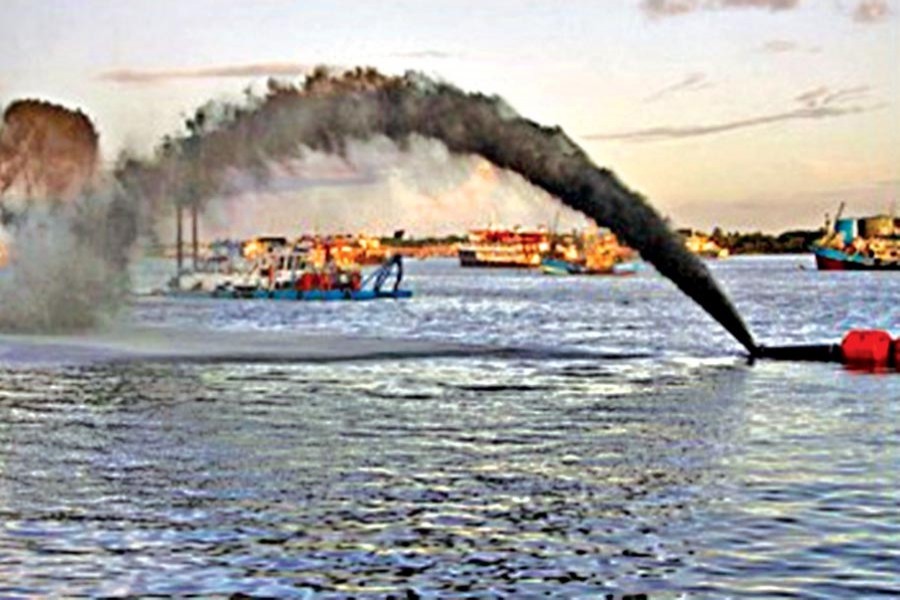The dredging of inland waterways is set to come under real-time monitoring as part of a government plan to develop a web-based system to track all such schemes.
Shipping ministry is working to initiate a year-long project to develop software in order to monitor public and private dredgers working under various schemes.
Officials concerned said they are hoping to develop and implement the web-based software by early next year.
The move has been made at a time when the government is undertaking multiple mega dredging schemes to tackle a decline in the navigability of national waterways.
While the total length of the country's waterway was once 24,000 kilometres, it has now eroded to only 6,000km in monsoon and 3,600 km during lean period.
Lack of maintenance, reduction in upstream flow as well as human interventions have often been blamed for such a decline in navigable waterways.
Correspondingly, a number of initiatives have been taken lately to carry out capital dredging in light of the need for smooth and improved navigability.
The Bangladesh Inland Water Transport Authority (BIWTA) dredges about 100 cubic metres of riverbed each year to restore, improve and maintain navigation routes.
However, the quantity of capital and maintenance dredging has been increasing rapidly as the demand for enhancing navigability increases.
"Currently, it's tough for agencies to closely monitor all dredging activities. Getting correct information in time is also not always possible," said shipping ministry joint secretary Rafique Ahmed Siddique.
"However, once the real-time dredging monitoring system is developed, it would be possible to monitor such tasks through a web-based system," he added.
As per relevant documents, the cost of developing the software as well as warranty, maintenance and training has been estimated at Tk 5.8 million.
Meanwhile, the cost of installation and configuration of the software at each site will be around Tk 200,000, the documents show.
The system would provide real-time dredging information like dredger name, dredging length, velocity, riverbed type and water level," said Maminul Haque Sarker, deputy executive director of CEGIS.
"At the same time, it'll enable visualisation of real-time dredging location on web-mapping service like Google Maps," said Mr Sarker, whose organisation is helping the ministry develop the scheme.
"It would also show cumulative dredging volume in table and graph. The users would be able to view information on the last three to five years of a particular waterway."
The officials concerned said it would also be possible to view live video of dredging activities or to monitor the siltation rate.
Other government agencies like water resources ministry, authorities of Chattogram, Mongla or Payra ports, Water Development Board and Local Government Engineering Department would also be able to use it. Due to the dynamic characteristics of the country's rivers, things like channel development, abandonment and course shifting are very common in Bangladesh.
However, the software will help justify the cause of such constant shifting of navigation routes, officials pointed out.
"A software application will be developed and installed on each dredger", Dr Sarker of CEGIS explained. "This application will run automatically and periodically with a 30-minute interval and upload dredging-related information to the central server from where the web-based application will extract information," he said.
Currently, many public agencies and private companies have dredgers which are old and do not support any automated system to extract dredging information.
For such dredgers, a data entry form would be developed to capture detailed information relating to dredging activities, the officials informed.
Insiders observed that web-based real-time monitoring would help increase transparency of dredging schemes alongside aiding better coordination and information sharing among ministries.


